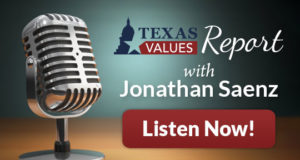Notable Portions of FWISD Transgender Student Guidelines
General Guidelines section, page 4:
“No medical or mental health diagnosis or treatment is required in order to have a student’s gender identity recognized and respected. School personnel must not question any student’s sincerely held belief.”
Named and Pronouns, page 4:
“…school personnel must use the name and pronouns preferred by a student.”
“School personnel should address the student by the name and pronoun that corresponds to his/her gender identity even in the absence of a court order legally changing his/her name or parent/guardian permission.”
Privacy and Confidentiality, page 5
“… keeping a student’s actual or perceived gender identity and expression private. School personnel may only share this information on a need-to-know basis or as the student directs. This includes sharing information with the student’s parent or guardian. When contacting the parent or guardian of a transgender student, school personnel must use the student’s legal name and the pronoun corresponding to the student’s gender assigned at birth…”
Student Transitions, Page 6
“Students may choose whether or not to have their parents participate in this process. In fact, notifying a parent or guardian carries risks for the student in some cases.”
Restrooms and Related Facilities, Page 6
“If other students feel uncomfortable sharing a restroom with a transgender student, the school must allow the student(s) access to a single stall restroom…the single user restroom, however, must not be given as the only option for transgender students.”
Gender-based Activities – Athletics, Page 7
“All students should have the opportunity to participate in athletics in a manner that is consistent and uniform with their gender identity, irrespective of the gender listed on a student’s records or identification documents.”
Gender-based Activities – School Activities, Page 8
“Students may not be excluded from participation…on the basis of gender identity in any program or activity. These activities and programs may include, but are not limited to, cheer class, homecoming, prom, spirit day, celebrations, assemblies, acknowledgments, after school activities/programs, and all extra-curricular activities.”
Creating a Supportive Environment, Page 8
“Wherever arbitrary gender dividers can be avoided, they must be eliminated. Calling students “students” or “scholars” instead of “boys and girls” may seem insignificant, but can make a notable difference…Start the day with inclusive language, and stick with it.
Click here to read the full guidelines.

